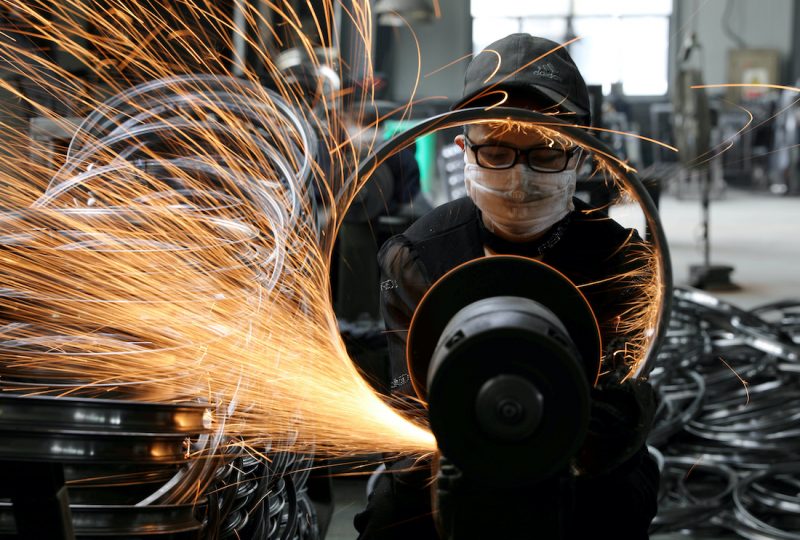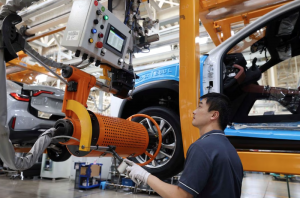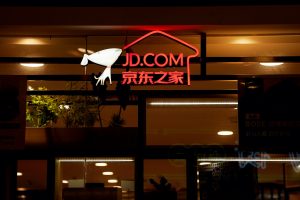China’s factory activity accelerated at its fastest pace in six months in December, driven by output hikes and easing price pressures, but a weaker job market and business confidence added uncertainty, a private survey showed on Tuesday.
The Caixin/Markit Manufacturing Purchasing Managers’ Index (PMI) rose to 50.9 in December – its highest level since June. Economists in a Reuters poll had expected the index to rise to 50.0, which separates growth from contraction on a monthly basis, from November’s 49.9.
The relative strength in the Caixin PMI tallies with an official survey released on Friday which showed China’s factory activity edged up.
Factory output increased at the fastest pace in a year, the private survey showed, helped by easing price pressures. A gauge of input prices fell to the lowest level since May 2020.
Soaring raw materials prices, which have weighed on manufacturers, have eased recently amid government efforts to increase supply and stabilise prices.
Job Market Pressure
But the survey also showed that new export orders fell, albeit at a slower pace, and a gauge for employment continued to contract, hitting the lowest level since February.
“Supply was strong and demand rebounded. With the easing of supply constraints, output expanded for the second month in a row and at a faster pace,” said Wang Zhe, senior economist at Caixin Insight Group.
“But the job market was still under pressure and businesses were less optimistic, indicating unstable economic recovery. The repeated Covid-19 flare-ups and sluggish overseas demand were factors of instability.”
The world’s second-largest economy has lost momentum since early summer after rebounding from last year’s pandemic slump, weighed down by a slowing manufacturing sector, debt problems in the property market, and small-scale Covid-19 outbreaks.
Analysts expect a further slowdown in fourth-quarter gross domestic product (GDP), after the economy grew 4.9% in July-September.
Covid Outbreaks Weigh on Economy
The wealthy Zhejiang province on China’s eastern coast saw a small-scale Covid-19 outbreak in December, which has now subsided, but some firms were forced to suspend production.
In the northwest, the industrial and tech hub of Xian has been under lockdown as a local outbreak continues to spread in the city of 13 million.
This year, debt crises at major real estate developers amid a crackdown on the property sector have also hurt an industry critical to China’s economic growth.
The central bank has said it will keep monetary policy flexible next year as it seeks to stabilise growth and lower financing costs for businesses amid growing economic headwinds.
“Policymakers should focus on shoring up employment as well as on targeted support to small and midsize businesses,” said Wang.
- Reuters with additional editing by Kevin Hamlin
ALSO SEE:
China Factory Output Up in November As Bottlenecks Ease
China Factory Prices Surge 13.5%, Highest in 26 Years
China Factory Activity Falls Even as Output Prices Surge
























